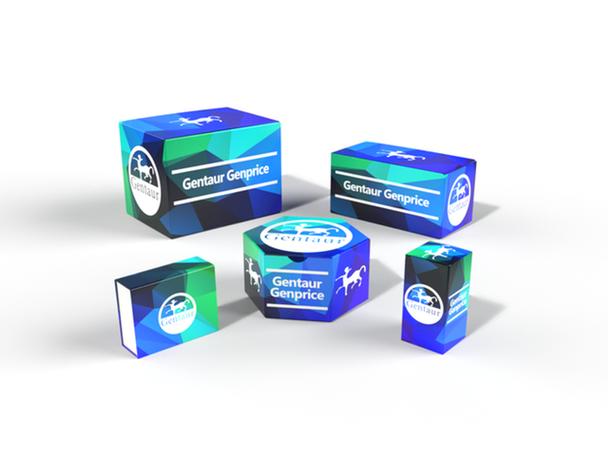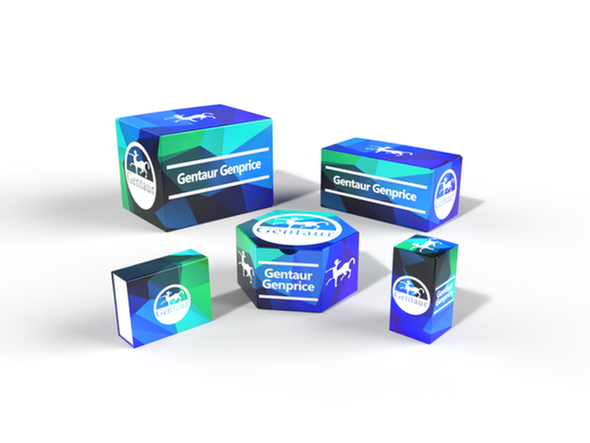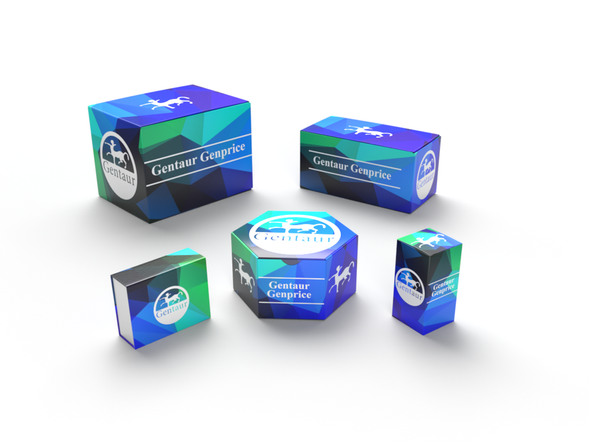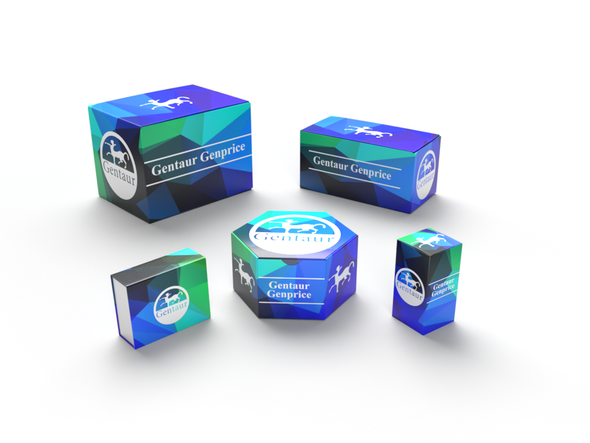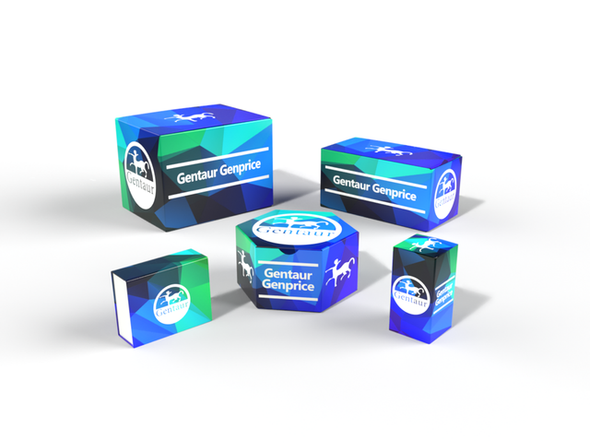Description
IRF8 Antibody | 3401 | Gentaur UK, US & Europe Distribution
Host: Rabbit
Reactivity: Human, Mouse, Rat
Homology: N/A
Immunogen: IRF8 antibody was raised against a peptide corresponding to 16 amino acids near the carboxy terminus of human IRF8.
The immunogen is located within the last 50 amino acids of IRF8.
Research Area: Chemokines & Cytokines
Tested Application: E, WB, IF
Application: IRF8 antibody can be used for detection of IRF8 by Western blot at 1 μg/mL. For immunofluorescence start at 10 μg/mL.
Antibody validated: Western Blot in human samples and Immunofluorescence in human samples. All other applications and species not yet tested.
Specificiy: N/A
Positive Control 1: Cat. No. 1314 - Human Thymus Tissue Lysate
Positive Control 2: Cat. No. 17-004 - K-562 Cell Slide
Positive Control 3: N/A
Positive Control 4: N/A
Positive Control 5: N/A
Positive Control 6: N/A
Molecular Weight: N/A
Validation: N/A
Isoform: N/A
Purification: IRF8 Antibody is affinity chromatography purified via peptide column.
Clonality: Polyclonal
Clone: N/A
Isotype: IgG
Conjugate: Unconjugated
Physical State: Liquid
Buffer: IRF8 Antibody is supplied in PBS containing 0.02% sodium azide.
Concentration: 1 mg/mL
Storage Condition: IRF8 antibody can be stored at 4˚C for three months and -20˚C, stable for up to one year. As with all antibodies care should be taken to avoid repeated freeze thaw cycles. Antibodies should not be exposed to prolonged high temperatures.
Alternate Name: IRF8 Antibody: Interferon Regulatory Factor, Interferon Consensus Sequence Binding Protein, H-ICSBP, ICSBP1, ICSBP, IRF-8, Interferon Consensus Sequence-Binding Protein, IMD32A, IMD32B
User Note: Optimal dilutions for each application to be determined by the researcher.
BACKGROUND: IRF8 Antibody: Interferons (IFN) s are involved in a multitude of immune interactions during viral infections and play a major role in both the induction and regulation of innate and adaptive antiviral mechanisms. During infection, host-virus interactions signal downstream molecules such as transcription factors such as IFN regulatory factor-3 (IRF3) which can act to stimulate transcription of IFN-alpha/beta genes. Unlike IRF3, IRF8 appears to act as a negative regulator of IFN-induced genes in most cases, but IRF8 mediates activation of NF-κB by the toll-like receptor 9 (TLR9) after stimulation by unmethylated CpG DNA in dendritic cells. Finally, it has been shown that IRF8 decreases bcl-2 expression and thus may play a role in chronic myelogenous leukemia.

